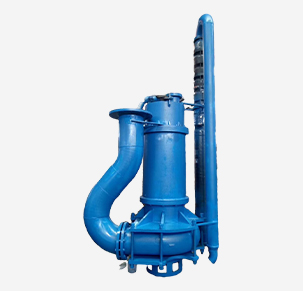Bosnian
- Afrikaans
- Albanian
- Amharic
- Arabic
- Armenian
- Azerbaijani
- Basque
- Belarusian
- Bengali
- Bosnian
- Bulgarian
- Catalan
- Cebuano
- Corsican
- Croatian
- Czech
- Danish
- Dutch
- English
- Esperanto
- Estonian
- Finnish
- French
- Frisian
- Galician
- Georgian
- German
- Greek
- Gujarati
- Haitian Creole
- hausa
- hawaiian
- Hebrew
- Hindi
- Miao
- Hungarian
- Icelandic
- igbo
- Indonesian
- irish
- Italian
- Japanese
- Javanese
- Kannada
- kazakh
- Khmer
- Rwandese
- Korean
- Kurdish
- Kyrgyz
- Lao
- Latin
- Latvian
- Lithuanian
- Luxembourgish
- Macedonian
- Malgashi
- Malay
- Malayalam
- Maltese
- Maori
- Marathi
- Mongolian
- Myanmar
- Nepali
- Norwegian
- Norwegian
- Occitan
- Pashto
- Persian
- Polish
- Portuguese
- Punjabi
- Romanian
- Russian
- Samoan
- Scottish Gaelic
- Serbian
- Sesotho
- Shona
- Sindhi
- Sinhala
- Slovak
- Slovenian
- Somali
- Spanish
- Sundanese
- Swahili
- Swedish
- Tagalog
- Tajik
- Tamil
- Tatar
- Telugu
- Thai
- Turkish
- Turkmen
- Ukrainian
- Urdu
- Uighur
- Uzbek
- Vietnamese
- Welsh
- Bantu
- Yiddish
- Yoruba
- Zulu
Telephone: +86 13120555503
Email: frank@cypump.com
dec . 13, 2024 19:36 Back to list
Understanding the Function and Importance of Effluent Septic Pumps in Wastewater Management
Effluent Septic Pumps Ensuring Effective Wastewater Management
In the realm of wastewater management, effluent septic pumps play a crucial role in ensuring the efficient disposal and treatment of sewage and gray water. These pumps are specifically designed for homes and properties that utilize septic systems, particularly in areas where gravity-based drainage is not feasible. Understanding the functions, benefits, and maintenance of effluent septic pumps can help homeowners make informed decisions about their wastewater management needs.
Effluent septic pumps are typically submersible pumps installed in a pump chamber or lift station. Their primary function is to transport effluent — the liquid waste from the septic tank that is relatively free of solids — to the drain field or other treatment areas. This process is vital, as it helps to prevent flooding and ensures that wastewater is adequately treated before reaching the environment.
One of the significant benefits of using effluent septic pumps is their capacity to handle various types of waste
. Unlike traditional septic tank systems that rely solely on gravity, effluent pumps are capable of moving waste uphill, making them particularly useful for properties situated on inclines or in remote areas where the gravity system would be ineffective. This versatility gives homeowners more options when designing their wastewater systems.Another advantage is their efficiency in reducing the risk of system failure. Regular maintenance of effluent septic pumps can lead to prolonged lifespan and reduced risk of malfunctions. It is essential for homeowners to routinely check their pumps, ensuring they are free of debris and functioning correctly. Scheduled inspections and timely repairs can prevent costly pump replacements and avoid the potential dangers associated with untreated wastewater.
effluent septic pump

Furthermore, the selection of the right effluent pump is vital. Homeowners should consider several factors, such as the size of their septic system, the volume of wastewater produced, and the distance the effluent must be pumped. There are various models and specifications available, including different horsepower ratings and discharge sizes. Consulting with a professional who understands local regulations and system requirements can lead to the selection of the best option for specific needs.
In recent years, technological advancements have significantly improved the design and functionality of effluent septic pumps. Modern pumps are more energy-efficient and often include features such as alarms that alert homeowners to potential issues, such as overheating or blockage. Moreover, many newer models are designed to minimize noise and vibrations, improving overall user experience.
However, despite the benefits and advancements, it is essential for homeowners to remain vigilant about their septic systems. One common issue is the improper disposal of non-biodegradable materials, which can lead to clogs and damage the pump. Educating household members about acceptable waste disposal practices can help maintain the pump’s efficiency and longevity.
In conclusion, effluent septic pumps are indispensable tools for effective wastewater management, particularly in areas where gravity systems cannot function adequately. By understanding their role, choosing the right model, and adhering to maintenance protocols, homeowners can ensure the smooth operation of their septic systems. Investing in proper wastewater management not only protects the environment but also safeguards public health, making effluent septic pumps a critical component of sustainable living in many communities. With the right approach, these systems can function efficiently for years to come, providing peace of mind for homeowners and preserving the natural ecosystem.
-
High-Efficiency Submersible Effluent Pump for Sewage & Wastewater Solutions
NewsJul.08,2025
-
High Quality CH Warman Slurry Pump Factory - Leading Horizontal Slurry Pump Supplier
NewsJul.08,2025
-
Hot Sale Chemical Circulating Pump – Efficient & Durable Slurry Circulating Pump Solutions
NewsJul.08,2025
-
High-Efficiency Submersible Dredge Pump for Sand & Gravel Durable Dredge Slurry Pumps Solutions
NewsJul.07,2025
-
Wholesale Slurry Pump Impeller Supplier – High-Quality & Efficient Pump Parts for Enhanced Performance
NewsJul.07,2025
-
High-Efficiency Water Submersible Pumps Reliable Water Pump for Potable Water Supply
NewsJul.06,2025










